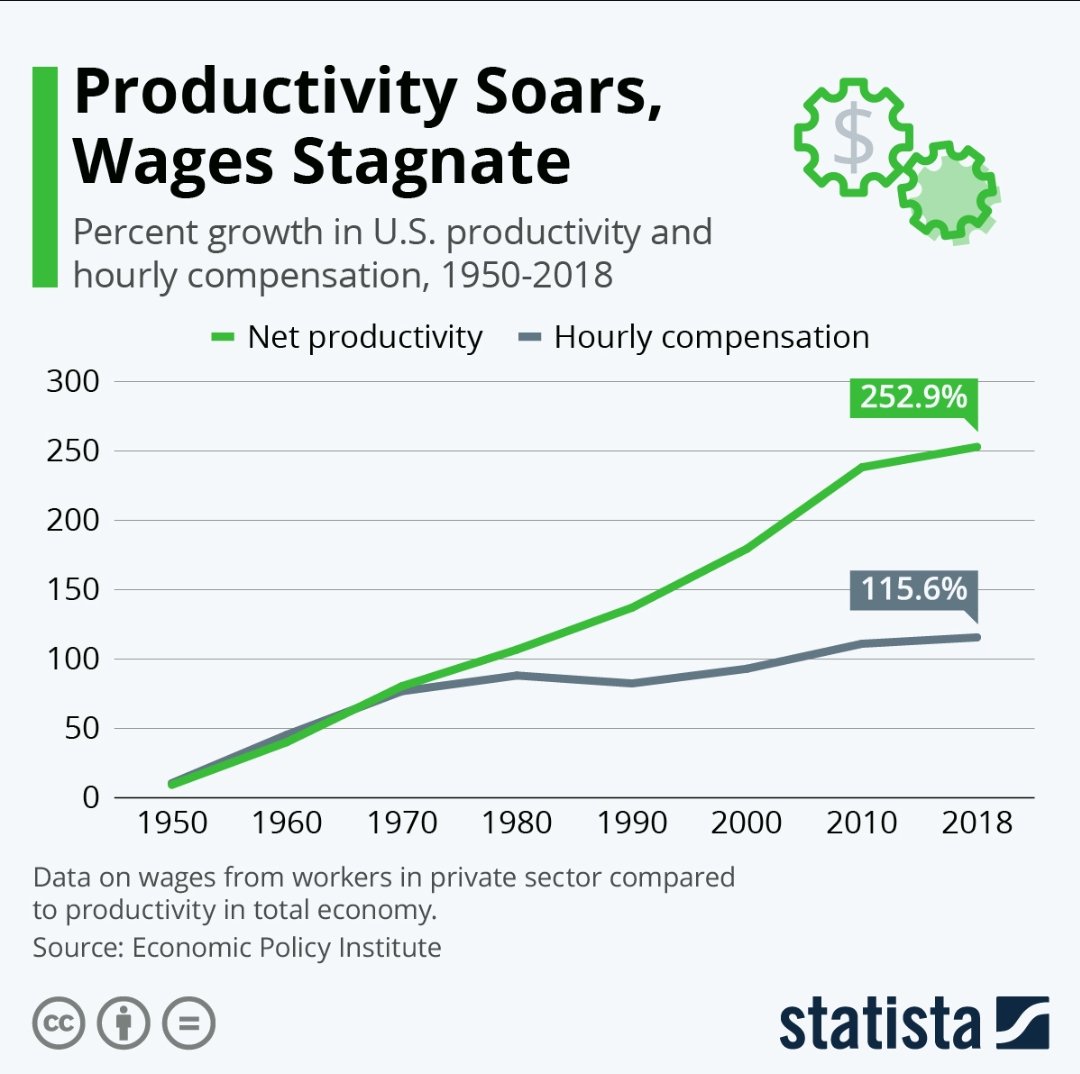Not necessarily, though. Sometimes salaries go up and prices go up. Sometimes salaries are stagnant and prices go up. Sometimes salaries go down and prices go up.
Prices go up no matter what because corporations are never satisfied with obscene profits. Their shareholders demand MORE obscene profits every quarter, everything else be damned.
Prices go up no matter what because corporations are never satisfied with obscene profits. Their shareholders demand MORE obscene profits every quarter, everything else be damned.
It’s not about making profits. It’s about growing profits.
So with increased efficiency/productivity you might get a situation where worker salaries get higher but since products are made cheaper they might not raise prices on them? Makes sense. I wonder if in such situations either the resulting inflation or just greed ends up pushing the prices up anyway in real world scenarios.
Of course, you’re right. I guess what I’m trying to say is that if there is going to be a predictable rise in people’s money, prices will increase extra. If no other measures are taken, people will have no change in how much they can buy, and prices will probably go up months earlier than incomes too.
that prices will go up when salaries go up is not wrong
Rising wages can increase prices, but don’t necessarily have to.
Also other factors can increase prices while wages stagnate.
Recent price increases e.g. have mostly been driven by supply and logistics issues, mostly for food and energy.
that that’s a problem is also not wrong
That is not entirely correct either.
If wages rise through the board, then rising prices are not a big issue.
On the contrary, wage driven inflation might even re-balance income distribution to the benefit of workers.
Well, the observation that prices will go up when salaries go up is not wrong; that that’s a problem is also not wrong. But this? Ugh.
Edit: dear downvoters: the “ugh” is about the article, I don’t think the gist of it is “good”.
Not necessarily, though. Sometimes salaries go up and prices go up. Sometimes salaries are stagnant and prices go up. Sometimes salaries go down and prices go up.
Prices go up no matter what because corporations are never satisfied with obscene profits. Their shareholders demand MORE obscene profits every quarter, everything else be damned.
It’s not about making profits. It’s about growing profits.
That’s what the person you’re respnding to said though?
Also, prices have to go up as long as interest rates are not declared illegal.
Personally I am very much in favour of declaring interests illegal.
Is there a situation where salaries go up but prices don’t?
when efficiency/productivity increases
Over the last 40 years in the US productivity has increased steadily and so have prices. Real wages have stayed flat.
So with increased efficiency/productivity you might get a situation where worker salaries get higher but since products are made cheaper they might not raise prices on them? Makes sense. I wonder if in such situations either the resulting inflation or just greed ends up pushing the prices up anyway in real world scenarios.
Of course, you’re right. I guess what I’m trying to say is that if there is going to be a predictable rise in people’s money, prices will increase extra. If no other measures are taken, people will have no change in how much they can buy, and prices will probably go up months earlier than incomes too.
Problem is the cost of housing seems completely disconnected to wage rises.
An even bigger problem is that wages have become disconnected from productivity.
Absolutely
Rising wages can increase prices, but don’t necessarily have to.
Also other factors can increase prices while wages stagnate.
Recent price increases e.g. have mostly been driven by supply and logistics issues, mostly for food and energy.
That is not entirely correct either.
If wages rise through the board, then rising prices are not a big issue.
On the contrary, wage driven inflation might even re-balance income distribution to the benefit of workers.